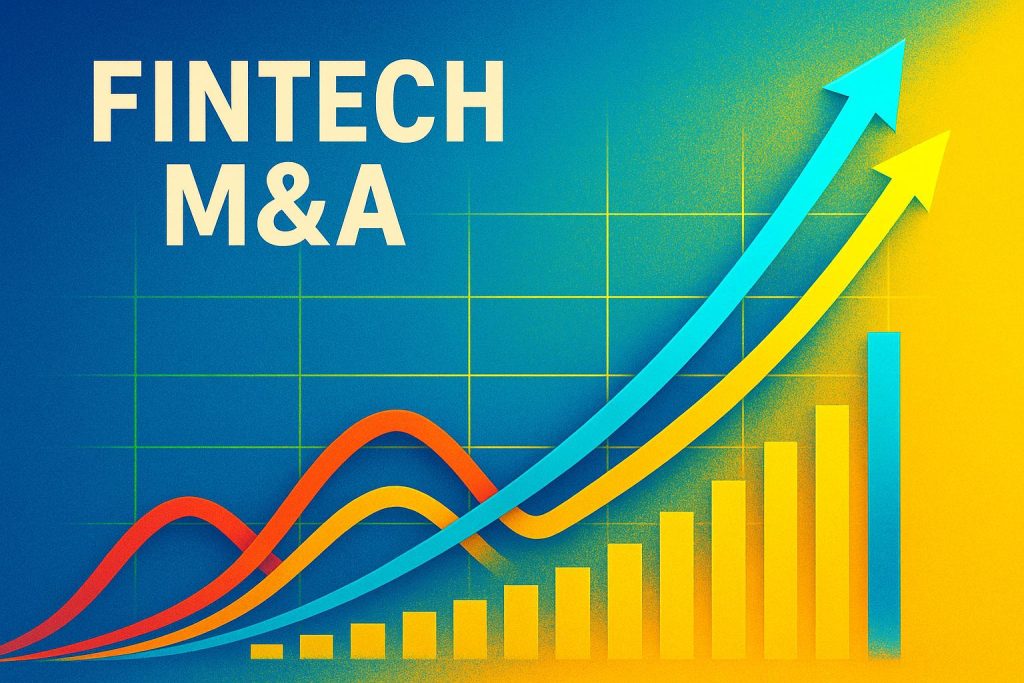Listen to the article
A recent report highlights a sharp surge in fintech mergers and acquisitions across Europe and globally, driven by a focus on sustainability and profitability amid market fragmentation and increasing traditional investor involvement, signalling a maturing industry landscape.
New analysis from law firm White & Case LLP reveals that fintech deal activity in the UK and Europe remains robust, with over 70 significant acquisitions and more than 50 strategic partnerships reported during the second half of 2024 and the first half of 2025. This represents a 50% increase in acquisitions and a doubling of partnerships compared to the previous year. The payments sector led this surge with over 50 deals, followed by distributed ledger technology (DLT) with more than 15, and trading and data analytics with around ten transactions. This heightened merger and acquisition (M&A) activity is primarily driven by fintechs seeking inorganic growth amid fragile capital markets and a shift toward profitability and sustainable expansion rather than rapid customer acquisition. Traditional banks have also emerged as key investors, acquiring high-quality fintech technologies through direct equity investments, venture funding, and strategic partnerships.
Despite this vigorous dealmaking, the fintech ecosystem has shown signs of strain, with several notable insolvencies and two large-scale corporate restructurings over the past year. This reflects the challenges fintechs face in securing stable funding while striving to scale. Looking ahead, experts expect continued funding efforts, but as the sector matures further, there will likely be more bolt-on acquisitions, corporate reorganisations, and eventually transformative deals. White & Case’s Hyder Jumabhoy notes that while fundraising rounds have diminished in volume, consolidation activities have surged, with profitability-focused fintechs poised for successful exits. He also observes growing activity in the UAE as a hub for private capital and anticipates that the US’s deep capital markets will remain attractive for high-growth fintech unicorns.
This regional trend contrasts with broader global fintech investment data. A KPMG report from early 2025 highlights a decline in worldwide fintech investment, falling from nearly $120 billion in 2023 to about $96 billion in 2024. Similarly, M&A deal value globally retreated from $60.2 billion to $49.6 billion in the same period. However, the payments subsector bucked the trend, with investments increasing significantly from $17.2 billion to $31 billion, underscoring the continued attractiveness of payment technologies within fintech.
Further analysis from Axios underscores the strength of fintech M&A in 2024, where activity surged to $165 billion, surpassing the full-year totals for both 2022 and 2023. This was propelled by high-profile deals such as Capital One’s planned $35 billion acquisition of Discover Financial Services. The third quarter alone saw a 41% year-over-year increase in deal numbers, marking the highest quarterly volume since early 2021. Private equity played a dominant role, especially in the largest deals.
European fintech M&A also saw dramatic growth in the first half of 2025. Business Money reports that disclosed deal values for transactions over $100 million nearly doubled the total for 2024, reaching $3.9 billion. This consolidation wave is targeting profitable fintech companies demonstrating strong commercial and strategic value, reflecting buyers’ increasing focus on mature and sustainable business models. The pace of deals indicates that this total could double again by the end of the year, signalling rapid market evolution.
At a global level, overall M&A activity has surged significantly in 2025, reaching a peak of $2.6 trillion in the first seven months, according to Reuters. This represents a 28% year-over-year increase driven by megadeals in the US and growing investment interest in artificial intelligence technologies. Corporate confidence appears to be strengthening despite ongoing geopolitical tensions and trade tariffs. However, these tariffs have also caused disruptions and uncertainty in the fintech sector; reports from earlier in 2025 note that retaliatory tariffs and global market volatility have delayed or postponed public offerings and investment rounds in notable fintech firms such as Klarna, Chime, eToro, and StubHub.
Overall, the fintech sector is at a pivotal juncture. While fundraising conditions remain challenging, the M&A landscape is expanding sharply as companies and investors prioritise scale, profitability, and sustainable growth. Traditional financial institutions’ increasing role as technology adopters and investors, combined with strategic consolidations within fintech, underscores an industry moving toward maturity and longer-term value creation.
📌 Reference Map:
Source: Noah Wire Services



